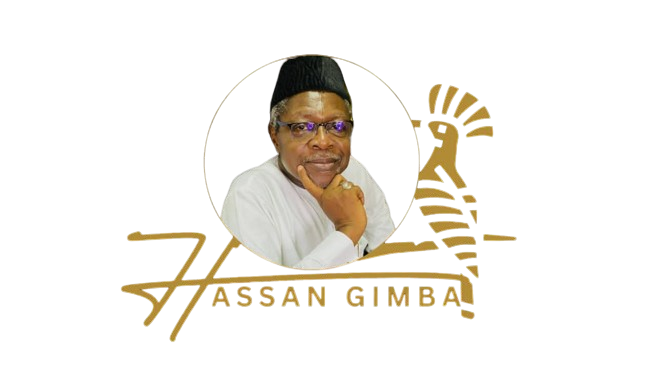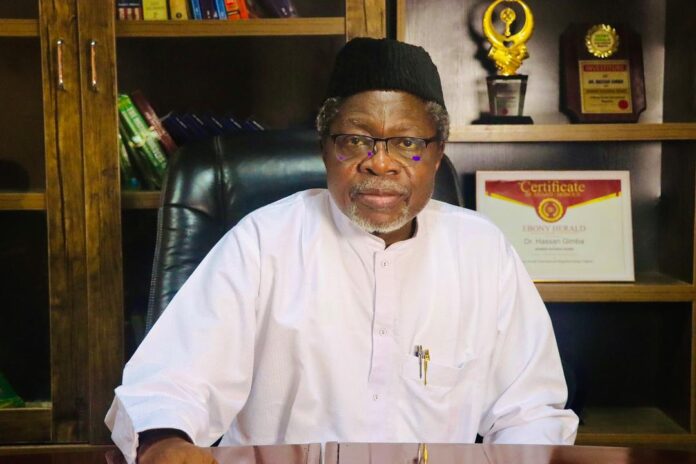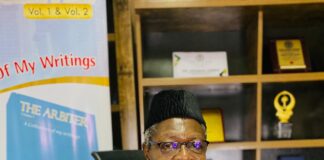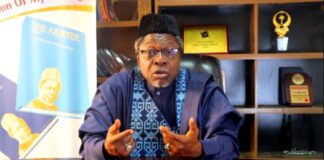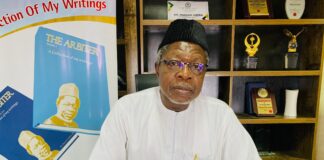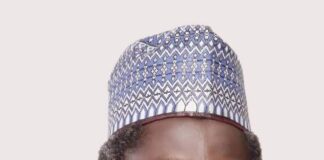Buhari: May our subsequent leaders die at home (3), by Hassan Gimba
The Arbiter
Yes, indeed, the late Muhammadu Buhari was perhaps the best politician of the Fourth Republic. He knew what he was doing when he spoke of Sharia in Sokoto, which caused him problems with the South and Northern Christians. But that solidified his Northern Muslim base and assured him of a solid 12 million votes. His kare jini, biri jini mantra further caused more schisms that made him the ultimate “champion” at home to be projected and defended at all costs.
But perhaps the single most incredible view of himself that he deliberately courted and promoted, which made him “vulnerable” and “fragile” and to be worked for, was the impression he gave of not being a politician. That, in itself, was a masterstroke.
You see, the average Nigerian has a negative perception of politicians. A politician is seen as a rogue, a liar, a cheat — someone who never keeps a promise, whose word is not his bond, and who puts himself first before country and everyone else; hence, not to be trusted.
READ Buhari. May our subsequent leaders die at home (1), by Hassan Gimba
And so Buhari extricated himself from that definition because he made it known that he was not a politician. It enhanced his image as that of a serious man of integrity. And since he was not one of them politicians, therefore, he must be trustworthy. But that narrative was expanded by the majority of his base to cover Nigerians. He was seen as the only “upright man of integrity” in whose hands Nigeria’s wealth must be safe. And the price of that was being poor!
And to underline his theory of lack of funds, he told us that he had to borrow money from his bankers to buy the forms for the 2015 election. No one questioned the bank’s interest in purchasing tickets for politicians, or how they would benefit from such “investments”. This act, of course, was condemned by many right-thinking Nigerians, including Femi Falana, SAN, who said: “That action of taking a bank loan is indefensible. I have condemned it, and political parties should take action against it. If you are obtaining loans for forms, what about elections? Elections cost billions in Nigeria, and that should be discouraged.” But trust the times — he was roundly insulted by a horde of Buharideens for airing his views. But Falana should not have worried because that problem was solvable.
And so money was donated to him — money that no one knew how much, except him, because it was sent into his account. To give people confidence, he even told donors that he was the only signatory. This put their minds at rest — that the money was in safe hands. To his base, he did not need to account or declare how much it was to anyone; of course, and he owed no one any explanation.
READ Buhari: May our subsequent leaders die at home (2), by Hassan Gimba
Ironically, Buhari later condemned politicians who collect bank loans for political purposes as people who would have to source funds from the government to pay back the loans.
Anyway, people eagerly and proudly worked for Buhari’s emergence in 2015. It was not out of place to hear people making statements like, “Buhari is not a politician”, and so they sacrificed their time and resources to campaign for him, since he was thought to be different. It also allowed him to talk as he wanted; any untoward statements were laughed away with the refrain, “You know General is not a politician.”
No politician in Nigeria has positioned himself to be carried shoulder-high to cross the tape and win like him. It was no small political manoeuvre.
The way he had the nation in 2015, where he was seen generally as a man the country was waiting for to come and clean the Augean Stable, Buhari’s party could have set Nigeria on the path to moral rebirth, inspiring good governance in the process. There would not have been the need to fight Senator Bukola Saraki’s election as Senate President because of corruption allegations, because Buhari could have insisted that no one with a suspicious or questionable past would be allowed to contest the election. But once you frolicked with him, accepted his contributions and allowed him to contest, you have lost the moral right to deny him becoming whatever he would become in the Chamber. If he was qualified to contest the election for a senatorial seat, he was qualified to contest for the office of the Senate President.
READ The PDP will not return to power, the APC has lost it…and Nigeria is the loser! By Hassan Gimba (written in 2017)
Likewise, Buhari could have insisted on not allowing the Kano State Governor, who was facing allegations of receiving dollar bribes from a contractor, to recontest in 2019 on the platform of his party, but he didn’t.
Yet the man had an immense following. Twelve million solid base of voters. Diehards who ask no questions. Nor motives: a politician’s delight, because any politician craves such unquestioning assets. But now the question on many lips is: who will inherit those 12 million voters? People can only hazard guesses, but we may not see that inheritor because the factors that shaped Buhari are no longer there. No individual has those factors working for them in the North.
Right now, only Peter Obi in the South has cultivated such a persona of honesty — like Buhari — and boasts of some vociferous following among young Nigerians who, like Buharideens, will insult the living daylights out of anybody who has the temerity to criticise.
However, beyond all we have said so far in this trilogy, our leaders must gear up and provide the needed services to the nation. The National Hospital in Abuja will remain in the glory of the late General Sani Abacha. Unconfirmed reports had it that his wife, Maryam, went to a hospital in Germany that specialised in women and children’s issues and, on return, informed the late dark-goggles-wearing dictator, who dispatched experts to go and study the German facility, which impressed his wife, from structure to operation.
Irrespective of the reports, the hospital — initially named the National Hospital for Women and Children — was founded under the Family Support Programme initiative, a pet project of his wife, and formally established by Decree 36 of 1999. The hospital was commissioned on 22 May 1999 by then Head of State, General Abdulsalami Abubakar, and renamed as the National Hospital by President Olusegun Obasanjo’s government on 10 May 2000.
READ The PDP will not return to power, the APC has lost it …and Nigeria is the loser!, by Hassan Gimba (Written in 2023)
The beauty of it was that all state governments, under the Family Support Programme chaired by military administrators’ wives, built family support hospitals which specialised in maternity and paediatric matters. The plan was to replicate this in all the nation’s 774 local government areas.
You see, that was a significant step towards self-dependence in the health sector. Imagine the race for education in various health courses that would have ensued, the related research institutions that could have sprung up, and the employment opportunities that would have been opened up. Nigeria would have been a centre for health care excellence by now. And Nigerian leaders would have stopped leaving the country as vegetables, returning as cargo in the belly of foreign aeroplanes. And our prayer, “May our subsequent leaders die at home,“ would not have arisen in the first place.
Concluded.
Hassan Gimba, anipr, is the CEO/Publisher of Neptune Prime.
